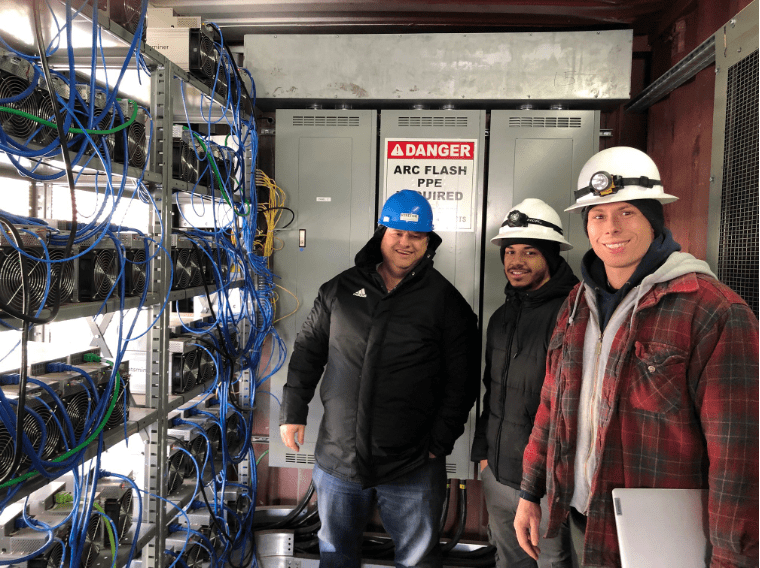Domain Connecting Cryptocurrency Miners at Large Scale: Over 20,000 Miners


Mining isn’t what it used to be in the Anthracite Coal Region of Pennsylvania—and neither are the miners. Today these miners are computers, and instead of mining coal, they are busy mining cryptocurrency, Bitcoin.
Domain Technology Group has been working in one of the area’s “mining villages” configuring the network backbone of a large digital mining operation connecting thousands of crypto currency miners, which are computers specialized to generate Bitcoin, to the internet in Northeastern Pennsylvania. For security reasons, we are unable to reveal the name of the operation.
The generation of cryptocurrency requires the execution of complex computer algorithms, a process that consumes large amounts of electricity. To support this energy demand, cryptocurrency miners or digital mining operations purchase or partner with power generation companies. That is exactly what is happening with one of Domain’s long-term clients’ generation stations. The power generation plant was designed and constructed to burn junk coal (culm) efficiently and be more environmentally friendly than older coal fired plants. While the plant ran successfully for a while, once fracking proved to be a less expensive process to obtain abundant Pennsylvania Marcellus Shale natural gas, the coal generation plant was no longer efficient when compared to natural gas energy production. This transition to fracking made the plant positioned for a new kind of mining.

Larry Goncea of Domain Technology Group with team members in front of Bitcoin miners.
About five years ago, in its infancy, much cryptocurrency mining was performed by hackers “hijacking” other’s computers and running the mining algorithms on these “borrowed” systems. The unwitting owners of the hijacked devices would notice a dramatic uptick in their electric bill and a reduction or complete collapse of computer response time.
Now, however, with the rapidly increasing demand for digital mining, which is an extremely power intensive process, miners are purchasing or partnering with coal generation plants and in some cases, even nuclear to support the power demand.
Currently, the process is too complex to rely on simple home systems and hijacking. Digital mining consumes a massive amount of computing power to generate digital currency. The algorithms to solve complex transactions require mining at a much larger scale. Today digital miners utilize large banks of very specialized computers to solve the complex transactions, verify them, and place the result in a blockchain. That blockchain, which is actually a detailed transaction register, is replicated on every digital miner in the world. Mining operations compete and are rewarded Bitcoin for their work. To be a real “player” in the mining arena requires significant capital investment of hundreds of millions of dollars. When the project began, Bitcoin was priced at $45,538. On July 12, 2023, it is priced at $30,549. Its maximum price was 61,539 on November 7, 2022.
Domain consultants define IP numbering schemas and connect the digital miners to the internet via power distribution units (PDUs), sub switches, master switches, and routers. Each of the devices receives a unique TCP\IP (Internet) address. Each device is constantly monitored for performance. The miners report their efficiency statistics 24/7. The sheer number of devices make configuring this site a complex networking operation.
As noted above, today, digital mining works only at large scale. When our client’s initial project is completed, there will be over 20,000 miners (each a separate computer) generating currency and consuming energy.
Ironically, Northeast Pennsylvania, an area once known for the coal mines that employed hundreds, if not thousands, of human miners, is once again a source of employment, now supporting Bitcoin virtual mining.
Lisa Masciulli
Phone: (215) 380 5229
Email: lisa@domain-group.com

